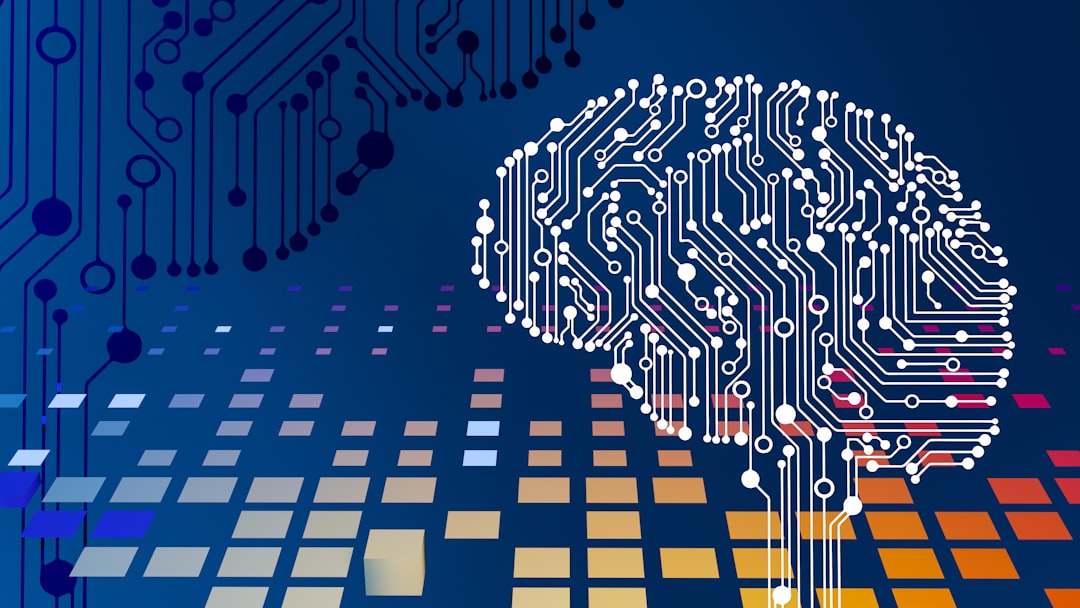The Future of Legal Services: AI and Automation Are Here to Stay (and Help!)
The legal industry has a reputation for being slow to adapt. As someone who straddles the tech and legal worlds (legal education background, tech career, you get the idea), I often find myself wondering how innovation can shake things up.
But here's the thing: the future of legal services is being shaped by the very technology I now work in – Artificial Intelligence (AI) and automation.
Now, I know what some of you might be thinking: "AI taking over my job? No thanks!" But hold on, this isn't a Terminator situation. AI and automation are here to be our allies, not replacements.
Let's delve into how these technologies can actually benefit both legal professionals and clients.
Photo by Steve Johnson on Unsplash
AI: More Than Just Fancy Legal Research
For many, AI in the legal field might conjure up images of research robots churning through endless legal codes. While AI can certainly automate legal research tasks (freeing up valuable lawyer time!), its potential goes far beyond. Natural Language Processing (NLP) allows AI to analyze vast amounts of legal documents, identifying key issues and potential risks with incredible accuracy. Imagine the time saved by having AI sift through contracts, highlighting areas needing your expert review.
Think about it – you can finally focus on the strategic aspects of a case, leveraging your legal expertise for what truly matters. AI can even assist with predictive analytics, analyzing past cases and legal trends to help you assess the likelihood of success in a particular situation. Data-driven insights? Yes, please!
Boosting Efficiency: More Time for What Matters
Imagine a world where you're not bogged down by document review or legal research. AI-powered tools can handle these repetitive tasks with incredible speed and accuracy. Think of all the extra hours you'd have to focus on complex legal issues, strategize with clients, and build stronger relationships. This shift would free up valuable time for the areas where human expertise truly shines – critical thinking, creativity, and client service.
Enhanced Accuracy: Fewer Errors, More Peace of Mind
Let's be honest, even the most meticulous lawyer can miss a detail here and there. AI can analyze vast amounts of data and identify potential risks or inconsistencies in contracts and legal documents with laser focus. This translates to fewer errors and a significant reduction in rework, giving you and your clients peace of mind.
Democratizing Access to Justice: Legal Help for Everyone
The high cost of legal services has long been a barrier for many. AI-powered tools can automate basic legal tasks, making it possible to offer more affordable legal services. This could open the door to a whole new segment of the population who previously couldn't access legal help. Imagine a future where everyone has the resources they need to navigate the legal system.
Automation: Streamlining Workflows and Reducing Costs
Automation isn't just about replacing human tasks; it's about streamlining workflows and improving efficiency. Repetitive tasks like document review, due diligence, and eDiscovery can be automated, freeing up lawyers to focus on higher-value tasks that require human judgment and creativity. This translates to faster turnaround times, reduced costs for clients, and ultimately, a more competitive edge for your firm.
Now, I understand some might be worried about job security. But here's the truth: AI and automation won't eliminate the need for lawyers – they'll simply change the nature of legal work. Lawyers who embrace these technologies will be the ones who thrive.
The Human Touch Will Always Be Essential
Despite AI's impressive capabilities, the human element in legal services remains irreplaceable. Clients value the empathy, judgment, and strategic thinking that lawyers bring to the table. Lawyers will always be needed to provide strategic guidance, navigate complex legal situations, and advocate for their clients.
AI can't replace the human ability to understand complex situations, build trust, and advocate for clients. Instead, AI should be seen as a powerful tool that can augment human capabilities and lead to even better client outcomes.
In fact, AI can actually enhance these core lawyer skills. Imagine having access to AI-powered tools that can help you research faster, identify potential risks, and even predict case outcomes. This newfound efficiency allows you to dedicate more time to building stronger client relationships and developing winning strategies.
*Photo by Steve Johnson on Unsplash*
The Road Ahead: Embracing Change and Staying Ahead of the Curve
The legal industry is on the cusp of a major transformation. While some may view AI and automation with apprehension, I believe they present a tremendous opportunity to improve efficiency, accuracy, and access to justice. The key is to embrace change, develop the necessary skills to work alongside AI, and stay ahead of the curve.
Of course, there are challenges to consider. Ethical considerations around AI bias and the human element of legal practice are crucial discussions to have. Law schools may need to adapt their curriculum to equip graduates with the skills to work alongside AI. But these challenges shouldn't overshadow the immense potential of AI and automation in the legal industry.
For lawyers out there who might be apprehensive about this change, I see it as an opportunity. AI can be your powerful partner, shouldering the administrative burden and allowing you to focus on the high-value aspects of your practice. It's a chance to redefine the role of the lawyer, moving away from document drudgery and towards a more strategic and client-centric approach.
The future of legal services is undeniably shaped by AI and automation. It's a future filled with exciting possibilities, and for someone who straddles the worlds of law and tech, I can't wait to see how it unfolds.
ABOUT ME
I'm Juliet Edjere, a no-code professional focused on automation, product development, and building scalable solutions with no coding knowledge.
Learn from practical examples and explore the possibilities of no-code, AI and automation. We'll navigate the tools, platforms, and strategies, one article at a time!
Visit my website → built with Carrd



